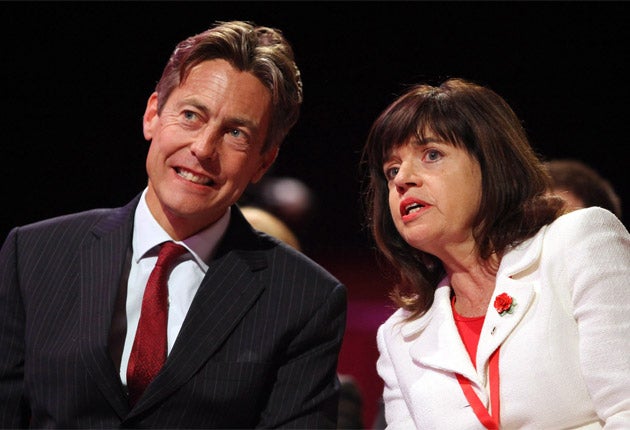Bradshaw's warning to the BBC: you must change to survive
Culture Secretary issues tough message as high-profile MPs wade into the Marr row

Your support helps us to tell the story
From reproductive rights to climate change to Big Tech, The Independent is on the ground when the story is developing. Whether it's investigating the financials of Elon Musk's pro-Trump PAC or producing our latest documentary, 'The A Word', which shines a light on the American women fighting for reproductive rights, we know how important it is to parse out the facts from the messaging.
At such a critical moment in US history, we need reporters on the ground. Your donation allows us to keep sending journalists to speak to both sides of the story.
The Independent is trusted by Americans across the entire political spectrum. And unlike many other quality news outlets, we choose not to lock Americans out of our reporting and analysis with paywalls. We believe quality journalism should be available to everyone, paid for by those who can afford it.
Your support makes all the difference.The BBC must listen more carefully to the demands of licence fee payers and will have to "change to survive", the Culture Secretary, Ben Bradshaw, has said.
In his speech to the Labour Party conference in Brighton yesterday, Mr Bradshaw issued a tough message to the Corporation. "Like all successful organisations the BBC must change to survive," he said. "It must be more sensitive to the views of the public who pay for it and to the impact its power and size have on the rest of the media."
He issued the warning as a row over a decision to ask the Prime Minister about his health on its flagship BBC1 Sunday morning politics programme continued. The start of Labour's conference had been overshadowed by the row between Downing Street and the Corporation after the presenter Andrew Marr asked Gordon Brown about rumours that he had become dependent on prescription painkillers.
At a fringe event on Monday night, the Schools Secretary, Ed Balls, a close ally of Mr Brown, said Marr had been wrong to question the Prime Minister on the topic. He said Marr had not acted responsibly in broadcasting to millions details of "malicious rumours made up by right-wing bloggers". He added that in bringing up the topic, the BBC was not acting with "integrity". Marr, who has been attending the conference in Brighton, was even confronted in the main conference hotel by the Communities minister, Ian Austin.
Jon Cruddas, the prominent Labour backbencher, revealed that he has refused to appear on the Marr programme. He said he was "outraged" that Mr Brown had been asked about an internet rumour. Aides at No 10 are keen to stop the row from rumbling on throughout the conference, but it is understood that they will pursue the matter with the BBC when the conference closes tomorrow.
Mr Bradshaw, who has previously suggested that the BBC's licence fee could be cut, said that the Government remained "committed to the BBC and the values of public service broadcasting". He turned his fire on James Murdoch, the chairman and chief executive of News Corporation, for claiming that editorial independence could only be guaranteed by profit. "No, Mr Murdoch, we do not believe that profit is the only guarantee of independence. We will never sacrifice the BBC on the altar of free market dogma."
He also defended plans to hand part of the licence fee to regional ITV news programmes in an attempt to prop up local news coverage. Executives at the BBC have been fighting the plans. "Good quality local news is vital for the health of our democracy," said Mr Bradshaw, "and we face losing it completely unless something is done. "Many of our local newspapers are also struggling to survive. We are the only party that is guaranteeing high-quality news on ITV in the English regions, Scotland, Wales and Northern Ireland, and saying how we are paying for it. Our solution and other measures we are taking will help local newspapers too."
He claimed that both sport and culture spending would be "decimated" by a Tory government, because they regarded the areas as "luxuries to be paid for by those who can afford them". He said that Boris Johnson, the Mayor of London, had "let one cat out of the bag" in suggesting that free admission to museums should be scrapped.
Join our commenting forum
Join thought-provoking conversations, follow other Independent readers and see their replies
0Comments